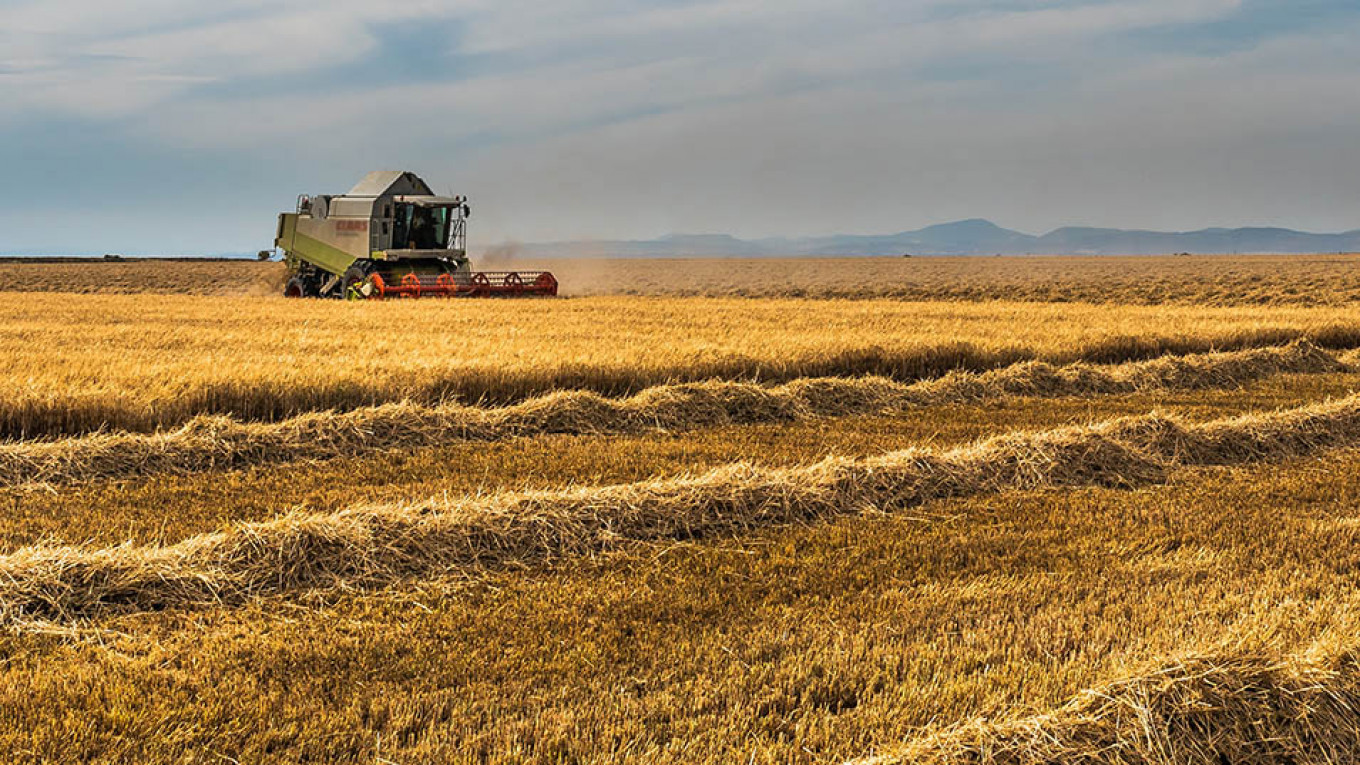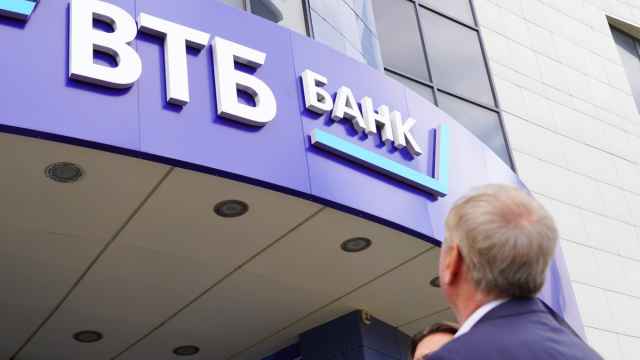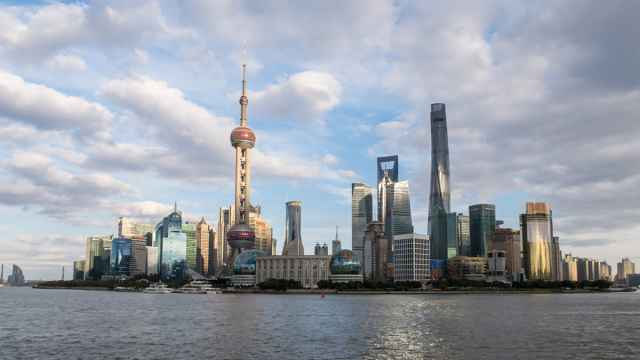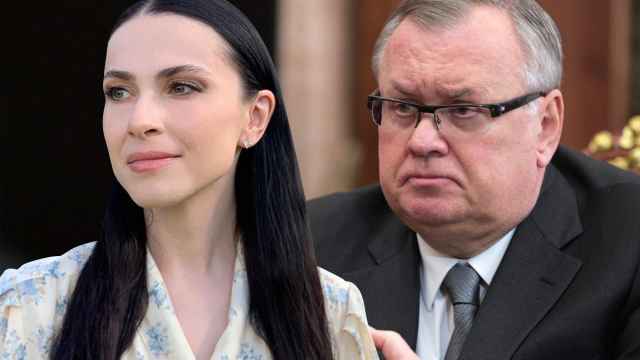Russian state-controlled bank VTB has asked President Vladimir Putin to help it create a Russian grain champion to curb the role of foreign traders and give the state greater control over exports, a letter seen by Reuters shows.
The letter from VTB Chairman Andrey Kostin dated June 26 made the case for why the Kremlin should give VTB the go-ahead for its plan, which would weaken leading Russian grain traders. Along with local firms, global giants Glencore, Cargill, Louis Dreyfus and Cofco all trade Russian grain.
VTB and the Kremlin did not respond to requests for comments about the letter.
Russia has become increasingly concerned about food security and reducing its reliance on imports since Western sanctions were imposed in 2014 following Moscow’s annexation of Crimea so has an interest in having a tighter grip on its grain markets.
Moscow has also been concerned about getting the right balance between domestic consumption and exports to avoid sharp rises in prices at home which would be unpopular, especially with the country’s meat industry which depends on Russian grain to feed its livestock.
Hand-written notes on the letter made on July 11 show that President Putin told the government to consider the proposal by VTB, Russia’s second largest bank.
“Dear Vladimir Vladimirovich,” the letter starts. “Given Russia’s agricultural export potential (the equivalent of $45 billion in 2024) and also the importance of ensuring reliable grain trade in the context of national food security, VTB has drawn up a plan to create a national leader, a vertically-integrated operator that would be called ‘United Grain Holding’.”
The new holding company would consolidate a raft of assets related to grain exports and storage and “take on the role of a leading Russian wheat trader”, VTB said.
VTB, whose traditional banking business has come under pressure internationally after it was hit by Western sanctions, urged the government to support upgrading infrastructure around two strategic Black Sea ports: Novorossiisk and Taman.
More assets
The letter lifts the lid on the extent of VTB’s plans. It has already transformed itself into the largest operator of grain infrastructure in Russia over the past year and now wants to become a leading grain exporter.
It said in the letter it would need another two to three years to consolidate and acquire more assets.
Russia has boosted production and exports of wheat in recent years due to favorable weather and a weaker ruble currency to become the world’s largest exporter, competing with the United States, France and Canada.
But Putin wants to go further. A year ago he set a goal of boosting Russia’s exports of agricultural products to $45 billion by 2024 from $26 billion in 2018. About $10 billion of the 2018 total came from grain exports.
The U.S. Department of Agriculture (USDA) expects Russia’s wheat exports to total 34.0 million tons this season, down from 35.7 million in the 2018/19 season.
VTB’s push to consolidate assets into a single holding company effectively controlled by the state is reminiscent of an approach taken in other sectors such as civil aircraft manufacturing and shipbuilding with mixed success.
VTB First Deputy CEO Yuri Soloviev told Reuters in June that the bank believed its move into grain would increase the competitiveness of Russian agricultural products abroad.
“A local and international trading platform, logistics, and transhipment (facilities) have been created. In general, our strategy is to achieve synergies by combining assets in export transportation logistics and trade,” Soloviev said.
As of early June, VTB had invested about $1 billion in its grain projects, Soloviev told Reuters.
Terminal moves
VTB has already taken major strides by buying stakes in two Black Sea grain export terminals at Novorossiisk, Russia’s main deep-sea grain export hub. These deals gave VTB control of 25% of Russia’s grain export capacity at ports.
VTB has also bought part of Russia’s largest grain rail-wagon owner Rustranscom (RTC). And this month, VTB fleshed out its portfolio of grain assets by buying a controlling stake in major local grain trader Mirogroup.
U.S. global trader Cargill has a stake in another grain terminal in Novorossiisk, while its rival Glencore owns half of a terminal in the nearby Black Sea port of Taman.
In its letter, VTB asked the government to approve a change of ownership in the Taman grain terminal, which is now linked to the Crimean peninsula by the new Kerch Bridge.
Half the terminal is owned by Ukraine’s Kernel group, VTB said, noting the firm was under Russian sanctions. It said it had already struck a preliminary deal with Kernel to acquire its stake, but needed the government’s sign-off.
VTB said combining Taman with a terminal in Novorossiisk into one cluster would bring synergies and greater capacity.
VTB told Putin it would also need the government to support the state-financed modernization of worn-out rail tracks and roads to improve access to Novorossiisk and Taman.
It also asked the government to consider privatizing a 25% stake in United Grain Company, an existing state-owned grain trader in which VTB already has a stake of 50% minus one share.
‘Smile and wave’
In the same letter to Putin, VTB took aim at international grain traders to bolster its case.
The foreign firms continued to play a key role in servicing Russia’s grain exports, it said. Citing expert estimates, it said they controlled 25% of grain transhipment capacity in sea ports and about half of Russian wheat trade in global markets.
VTB said the traders did not always carry out their functions with “optimal conditions for Russia”, and accused them of leaving a significant part of the added value offshore.
Traders have been keeping a wary eye on the march of a powerful Russian bank into the grain sector. For them, it means tougher competition in ports and traditional markets.
“Smile and wave,” one trader said when asked what his strategy to deal with competition from VTB was for the 2019/20 season, which started on July 1.
VTB’s newly-acquired trader, Mirogroup, plans to export 6 million tons of grain, including 5 million tons of wheat, from Novorossiisk in the 2019/20 season, one source familiar with its plans said.
Last season, Mirogroup exported 2.5 million tons of grain, the source said.
If Mirogroup succeeds in more than doubling its exports, it would become one of Russia’s top three grain exporters, alongside local trader RIF and Glencore.
Mirogroup is targeting Egypt, including state grain buyer GASC, Turkey and other traditional markets for Russian wheat.
The aim of VTB’s proposed grain holding company is to control the supply chain from producer to consumer and to become a multinational giant in a market where Russia already dominates, the source said.
“This does not mean that VTB wants to monopolize everything using state influence,” the source said.
“The grain market is quite chaotic, and it is likely that in the near future it will acquire the outlines of a civilized industry. It will be in the Russian legal sphere, will be paying taxes, and creating jobs.”
A Message from The Moscow Times:
Dear readers,
We are facing unprecedented challenges. Russia's Prosecutor General's Office has designated The Moscow Times as an "undesirable" organization, criminalizing our work and putting our staff at risk of prosecution. This follows our earlier unjust labeling as a "foreign agent."
These actions are direct attempts to silence independent journalism in Russia. The authorities claim our work "discredits the decisions of the Russian leadership." We see things differently: we strive to provide accurate, unbiased reporting on Russia.
We, the journalists of The Moscow Times, refuse to be silenced. But to continue our work, we need your help.
Your support, no matter how small, makes a world of difference. If you can, please support us monthly starting from just $2. It's quick to set up, and every contribution makes a significant impact.
By supporting The Moscow Times, you're defending open, independent journalism in the face of repression. Thank you for standing with us.
Remind me later.







